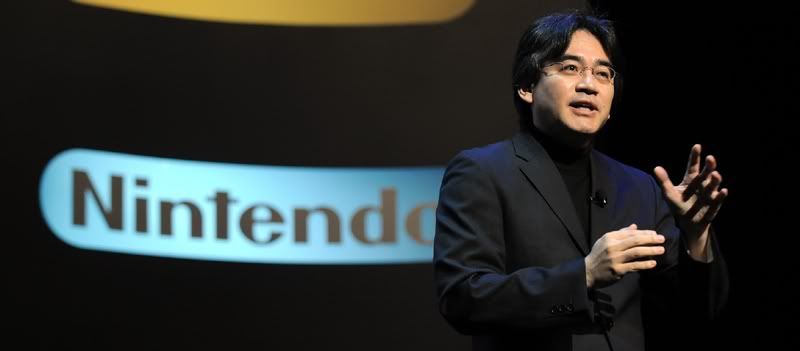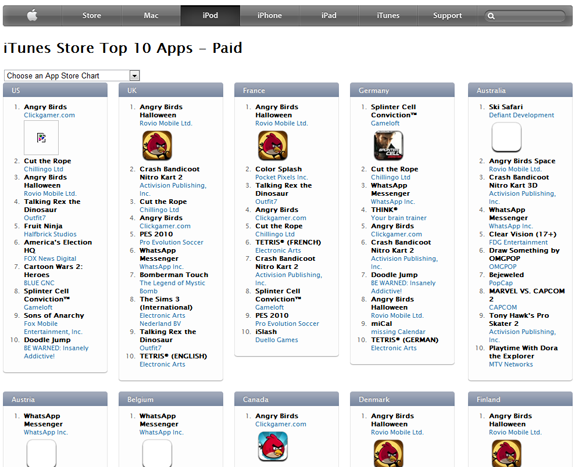This post has not been edited by the GamesBeat staff. Opinions by GamesBeat community writers do not necessarily reflect those of the staff.
Nintendo posting its first ever annual loss last year has brought another barrage of condemning articles from mainstream financial publications claiming the company should switch over to smartphones. There are a bunch of reasons why a lot of people think this is absurd, but I find it strange that I haven’t seen much emphasis on probably the most important reason: the amount of money on the table.
You can almost immediately see a complete disregard for how conventional console video games work coming from analysts and Nintendo’s own investors. They ask for Nintendo to release games outside of their own hardware, and some ask for them to abandon hardware entirely and just release games on iOS.
You’ve got to ask, though: How much money would Nintendo actually stand to make in mobile gaming, and how would that compare to the money they bring in now?
Despite Nintendo’s loss last year, there just isn’t nearly enough money to be made on these mobile platforms yet for a company as big as Nintendo — not by a long shot.
A fairly obscure survey on iOS game developers put the mean average revenue (not profit) for an iOS game last year at around $165,000 and the median at $2,400. That might be pretty good for indie games but not for established companies. Also, the difference between the median and mean shows that a few games are making it big in that marketplace while a lot more languish.
But Nintendo’s games would probably be extremely popular on iOS – lot of people bought into that fake Pokémon Yellow app a while back. Even the biggest mobile successes, however, seem small compared to conventional gaming revenue.
Last year Angry Birds developer Rovio estimated that they brought in around $100 million in revenue for 2011. That’s all their products, including all the Angry Birds games combined. Zynga, with all their social and mobile titles, swung to a loss a little smaller than Nintendo’s, with around $1 billion in revenue. Furthermore, the entire Apple App Store in its whole lifespan has brought in around $4 billion in revenue. That’s all apps combined since 2008. (Apple doesn’t have individual profit data on all those app makers.)
Nintendo brought in around $12 billion in revenue in 2011 alone.
Now, that number does include all of Nintendo’s hardware, which makes this discussion a bit murky. Comparing Nintendo’s hardware revenue to Apple’s is a bit ridiculous, but Nintendo’s systems are more tied to games than Apple’s devices. Games are all Nintendo does, and their hardware is successful purely because of games — more specifically, their own games. As things stand now, Nintendo's hardware can’t survive without their game software, which for Apple is still only a fraction of their business.
Furthermore, a lot of Nintendo’s critics want them to abandon that hardware. Even if Nintendo started developing for iOS, it would likely undermine their console and handheld business. So, there’s a case for letting Nintendo’s hardware stick to that $12 billion figure. Even if you could split apart software and individual games — like Mario Kart 7 and Super Mario 3D Land, which have generated around $5 million each since last holiday season — I have a feeling it’d still dwarf what Rovio and Zynga are putting out.
From what I’m seeing, Nintendo switching to iOS theoretically leaves enormous amounts of money on the table.

But, of course, you have the difference between revenue and profits. Nintendo’s games may have brought in more money last year than the most successful iOS apps, but they still swung to a net loss in the end. You could attribute that to a whole host of reasons, but the suggestion to switch over to social and mobile ignores Nintendo’s size and what it takes to keep the company running.
I don’t know a whole lot about business, but something tells me a company built to bring in $12 billion in a year can’t just switch to a marketplace that might bring in a tenth of that annual revenue, if even that. Something tells me a whole lot of downsizing would take place. Furthermore, for their theoretical iOS revenue to come close to what their games probably make now, Nintendo alone would have to be the cause of a ridiculous explosion in the App Store market.
The main thing keeping the big game companies from really going full force into mobile with their latest games is that the profit ceiling is too low — mostly because of the incredibly low price ceiling. You can’t expect the Nintendoes and Electronic Artses to sell their latest games for 99 cents or even $10 or downsize entirely to games more worth those prices even if they’re on a platform with a userbase in the hundreds of millions. Even if Nintendo became as successful as Rovio or Zynga, it’s still way too small compared to what they have now.
Now, maybe if you could actually sell a mobile game for $30 or $40 and still hit mass market success, things might be different. That’s the central problem in my eyes, though — those markets aren’t mature enough yet.
The reason social and mobile gaming are getting so much press is because of how fast they are growing compared to conventional console gaming. Rovio’s $100 million 2011 revenue estimate is a tenfold increase from 2010. Maybe one day those sectors could eventually reach the level of maturity, profits, and production values you currently see in the conventional console market. Maybe if the Wii U can’t turn things around for Nintendo and they keep losing money for another several years, we can start talking about a change-up.
Yes, there are a lot of games that I think would be great fits for iOS, but the priority is always on the business side. Suggesting Nintendo make such drastic changes now and assuming this new craze is going to wipe out the old just sounds like kneejerk, short-term thinking to me. You could also say that Nintendo should go third-party in general and make games on every platform, but that’s a whole other, very old discussion.

